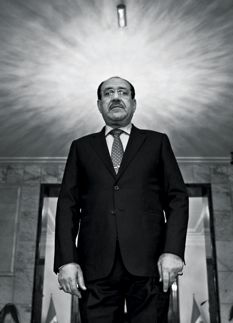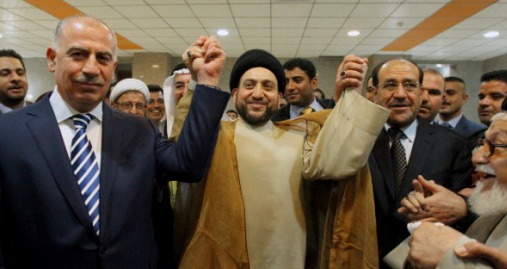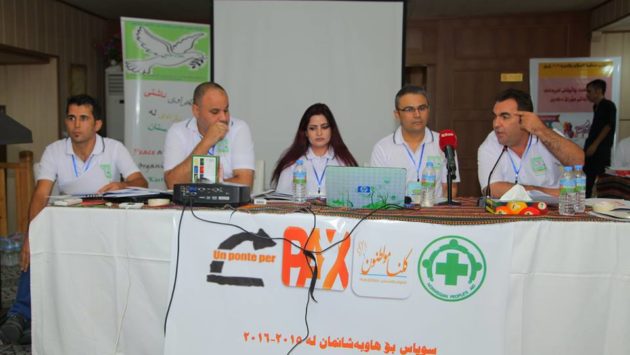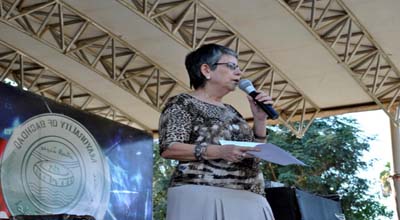WHAT WE LEFT BEHIND
An increasingly authoritarian leader, a return of sectarian violence, and a nation worried for its future.
BY DEXTER FILKINS, Newyorker
On Christmas Day last year, Prime Minister Nuri al-Maliki appeared on Iraqi television to wish his country’s Christian minority—which has been fleeing by the thousand since the American invasion, in 2003—a happy holiday. Maliki, who is sixty-three, wore a dark-blue suit and a purple tie, and stood almost perfectly still at a lectern flanked by Iraqi flags. His long face conveyed, as it almost always does, a look of utter joylessness. Having spent much of his life hunted by assassins, Maliki gives the impression of a man who learned long ago to ruthlessly suppress his feelings. “He never smiles, he never says thank you, and I’ve never seen him say, ‘I’m sorry,’ ” a longtime associate of Maliki’s told me. For Maliki, the holiday greetings were a pretext. What he really wanted to talk about was protests unfolding in Anbar Province, west of Baghdad. “Thank God, the truth has been revealed,” he said.
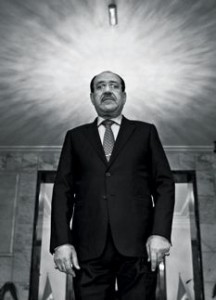
When the last American soldiers left Iraq, at the end of 2011, the bloody civil war between the country’s Sunni and Shiite sects had been stifled but not resolved. Now the sectarian violence had returned, with terrifying intensity. For more than a year, thousands of Iraqis, nearly all of them members of the Sunni Arab minority, had been gathering to rail against Maliki’s Shiite-dominated government. Although the protests were mostly peaceful, security forces responded harshly, detaining thousands of Sunni men without charges and, in one encampment, touching off a spasm of violence that left hundreds of civilians dead. Across the Sunni heartland, north and west of Baghdad, the town squares filled with angry crowds, and the rhetoric grew more extreme. In Ramadi, protesters raised black jihadi flags, representing the extremist Al Qaeda offshoot that had dominated the city during the American occupation. “We are a group called Al Qaeda!” a man shouted from a stage in the protesters’ camp. “We will cut off heads and bring justice!” The crowd cheered.
Speaking into the television cameras on Christmas, Maliki ordered the protesters to disband. Largely ignoring his own men’s excesses, he claimed that the protests were dominated by extremists. “This site has become a base for Al Qaeda,” he said, filled with “killers and criminals.” Maliki ended his speech with what for him was a flourish of emotion, lifting a hand from the lectern. “There will be no negotiations while the square is still standing.”
In the protests at Ramadi, a Sunni member of parliament named Ahmed al-Alwani had inflamed the crowds, accusing Maliki of being in league with the Iranian regime, the region’s great Shiite power. “My message is for the snake Iran!” Alwani shouted into a microphone, jabbing his finger into the air. Referring to Maliki and those around him as “Safavids” and “Zoroastrians,” terms that denote Iranian invaders, he said, “Let them listen up and know that those gathered here will return Iraq to its people!”
Three days after Maliki’s speech, security forces surrounded Alwani’s compound. Officials claimed that they had gone not to arrest him—as a member of parliament, he had immunity—but to capture his brother, who was wanted on vague charges of “terrorism.” Gunfire broke out. The troops killed six people and took Alwani away. A photograph apparently smuggled from jail showed him in an orange jumpsuit with bruises on his face. His brother had fared far worse: he was shot to death in the fighting.
FROM THE ISSUEBUY AS A PRINTE-MAIL THIS
Soon afterward, troops cleared the Ramadi camp, on a day when it was sparsely occupied. Anbar Province erupted, along with the rest of Sunni Iraq, and the violence has not ceased. A wave of car bombers and suicide bombers struck Baghdad; in January, more than a thousand Iraqi civilians died, the overwhelming majority of them Shiites, making it one of the bloodiest months since the height of the American war. In the effort to put down the upheaval, Maliki ringed the province’s two largest cities, Falluja and Ramadi, with artillery and began shelling. Forty-four Sunni members of parliament resigned. In Falluja and Ramadi, Sunni police abandoned their posts.
Maliki, apparently realizing that he had miscalculated, ordered the Army to leave both cities. Within hours, dozens of armed men, their trucks flying black flags, swept into the downtowns, declaring that they were from the Islamic State of Iraq and the Levant, an Al Qaeda splinter group. Locals said that it was made up of men who had fought the Americans. “They are sleeper cells—local people,” a Falluja resident, who watched the rebels come into the streets, told me. “Al Qaeda was here all along, lying low. And now they control Falluja.”
The capture of Iraqi territory by Islamic extremists, barely two years since the last American soldiers left, prompted an extraordinary wave of soul-searching in Iraq and the United States, which lost more than thirteen hundred men and women in Anbar Province. Much of that reflection, in both countries, centered on Maliki, the man in whom the United States invested so much of its hopes and resources. Among many Iraqis, the concern is that their country is falling again into civil war, and that it is Maliki who has driven it to the edge. On April 30th, Iraqi voters will go to the polls to choose a parliament and ultimately a Prime Minister; after eight years in office, Maliki is seeking a third term. Many fear that victory would allow him to tighten his hold on the state. “If he wins this time, he will never leave,” the longtime Maliki associate told me.
I saw Maliki in his office in February, and he appeared as stiff and colorless as he did during his televised speech—an apparatchik become the boss. Wearing the same navy-blue suit and purple tie, he spoke in a monotone, his face blank, his body seemingly fixed to his chair. The office, a sterile room without a trace of warmth, had no windows, presumably because windows could be shattered by bombs.
PHOTOGRAPH: MAGNUM

